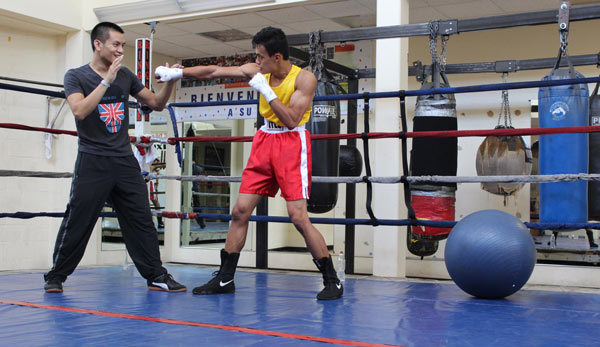
Helpful tips for new boxing trainers and fight coaches. I still think you should speak with (and learn from) a more experienced coach but these are some of the things I’ve figured out from my own experience.
Coaching a fight can actually be a lot of fun as you can be a part of the fight AND watch the fight. The hardest part is figuring out how to make the adjustments that matter. And how to give information without overloading your fighter.
1. Expectations
Every journey should start off with the right expectations and realistic goals in mind. Establish clear and honest goals with your fighter. What does your fighter want to do? Fight for a world title? Experience the excitement of competing? If your fighter is a 15-year old beginner, it’s better not to worry about being world champion and instead focus on doing well, and learning in his/her very first amateur fight. Otherwise, you’re setting up your fighter for a whole world of pain should he or she lose that fight.
2. Training
The training needs to reflect the expectations and goals. If you want to “just do well”, you’ll have to train really hard. If you want “to win”, then you need to be beating up everyone in sparring every single day. After all, fighting is a bit random, right? You show up in the ring and never know who you’re going to face, how well they’re going to do or how well you’re going to do. So your fighter needs to be winning just about every sparring match every single day.
But again, since we’re being more realistic, let’s focus on growth rather than on winning. What did you work on today? What did you learn? What things were you doing now that you weren’t able to do before? What other things could you easily fix that would make a big difference?
I would recommend setting a fight date no more than 3-6 months out. And 3-4 months out is probably better. 6 months may be too long that some fighters lose motivation. Scheduling a fight only 1 or 2 months out may be scary if your fighter isn’t in tip-top fighting shape. 3-4 months out is great because it’s short enough to keep the excitement and motivation going but also long enough to improve a lot.
Practice making fight adjustments in sparring.
Now would be a great time to practice your coaching skills. During sparring, ask the fighter to do different things and make adjustments on the fly. This is the ultimate test of coaching skills that can make a huge difference on the day of the fight. Sometimes, there isn’t any time to learn a new concept or work on a new skill. You say what you see, and the fighter needs to be able to adjust to that immediately.
Practice being CALM. Offer your fighter a place of security. Comfort, not excitement.
3. PRE-fight
The week before the fight
Work on your fighter’s strengths. No more fixing and critiquing. Build confidence in your fighter. HE’S GREAT, HE’S AMAZING, HE’S GONNA WIN! You’ve done all that you can. He’ll always have some bad habits, but he’ll also have some good habits. Give him the confidence to be amazing and feel sure of himself. Very few fighters have NO MISTAKES. It’s more like, they do so well and get so comfortable that their strengths compensate for their mistakes.
If you absolutely must adjust your fighter, make small easy adjustments. Don’t make him feel like he needs to memorize 10 new things or else he gets knocked out. Try to summarize it down to 2 or 3 things or even just 1 thing if you can. Nobody remembers much in the heat of battle anyway.
It’s important to talk about “fight-day expectations”:
- nerves (causing premature fatigue)
- tough opponent (you draw the scariest guy at the tournament)
- bad luck (bad judging)
- muscle cramps (from over-training or making weight)
- no sleep from previous night
- lose your mouthguard (or other gear) and have to wear one that doesn’t feel comfortable.
- you don’t perform at your best (don’t worry, NOBODY does)
- …and a billion other things.
Anything that can go wrong, WILL go wrong.
Murphy’s law, right? Your fighter should be prepared for ANY situation. The important thing is that you WANT to be here. And that you’re well-trained and know to expect and fight through these hardships.
FIGHT DAY
Fight day is here! The first thing to get a hold of is your fighter’s nerves. Some fighters get nervous right when they wake up in the morning. Other fighters seem 100% fine and then crap their pants the moment they’re about to get called out. Keep your fighter talking. The moment he gets lost in his head, snap him out of it by making him recite the game plan. If a fighter doesn’t appear to be nervous, I always make him recite the game-plan anyways.
You can’t prevent fighters from getting nervous,
but you CAN give them a plan.
COACHES….make sure your guy gets a fair fight. Even size, even skill, even experience. Things might not always be fair but at least be ready to walk away if they don’t give you a match-up you like for your fighter. This is especially a problem in unofficial/unsanctioned bouts (aka “smoker fights”) when you’re fighting in somebody else’s gym.
And once you’ve got your opponent try not to focus on him. Try not to make your game plan all about him. If you happen to catch a glance at his movements, you can maybe think of some tactics to try but otherwise, DON’T LOOK AT THE OTHER GUY. Besides, everyone always looks amazing when they hit the mitts. Your fighter probably doesn’t even know how amazing he looks, so he might be terrified if you let him watch the other guy. Most fighters always get nervous anyway and perform at 25%.
THE HALF PLAN:
Try to do only half the things you do in sparring.
That’s all you have to do. Just half of your best in sparring and you’ll win. My reasoning is that most fighters will be trying to be at 100% that they try too hard and over-do it. By trying to do 100%, they end up getting only 25%. By trying to remember 100%, they end up doing only 25%. Instead, you should trust that your body has already made a habit of most of those things and you only have to remember a few things. Remember: the more you try to do, the worse you will perform. The stuff that works best is the stuff that comes out naturally.
Warm-up routine…move around and stay hot. Wear clothes that make you [too hot]. This way, you’ll be sweating and your muscles are primed. If you strip down to a t-shirt, you’ll feel cold and not as warmed up. Staying HOT keeps your muscles warmed up, loose, and ready to go.
4. IN-fight
Remind your fighter of a few things and that’s it. Fighters often resort to their habits, not a checklist. As for nerves—enjoy the excitement. Nothing more.
During the rounds
KEEP YOURSELF CALM….and PENETRATE WHEN YOU SPEAK. If you have to yell loudly to get through, do it. If you have to speak calmly or in a certain tone, do it. Some coaches use a tone of urgency and seriousness. Other coaches use a tone of anger. And some use a tone of peace.
I think it’s best to come from a place of calmness yourself, otherwise your message gets lost within all the excitement of the atmosphere.
Some common commands:
- keep your hands up
- move your head
- jab
- watch out his right/left/etc
- keep moving
- box him
- go to the body
My personal favorites:
- set up your shots
- look for the openings
- counter his right/left/etc
In between rounds
Again, give him a place of peace and security. You’ll have to tell him 1) that he’s on the right track, and 2) what to do. The hardest part is when your fighter is getting beat up and isn’t doing anything right. What if he’s scared or falling apart? Some coaches think yelling and shaking him out of it is the best answer. Other coaches think calming him down is a better answer. It’s really up to you but I prefer calmness.
5. Celebrate
When the fight’s over, it’s time to celebrate. And what are we celebrating? The same thing every time. Celebrate hard work, celebrate courage, and if he/she wins—celebrate the victory. This attitude takes care of the worst case scenarios, such as when your fighter loses or worse (gets knocked out). I don’t believe in making fighters feel like a loser or punishing them for not having listened to you better.
Self-reflection is helpful if it motivates a fighter work harder. But it isn’t helpful if it’s breaking down the fighter mentally, making him/her feel inadequate or taking the fun out of fighting.
It’s really not easy to be a fighter and it’s important to celebrate every little achievement they make. This is part of building a positive growth process and before long, the wins will come eventually.





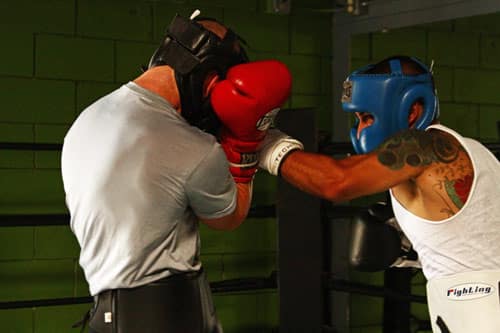
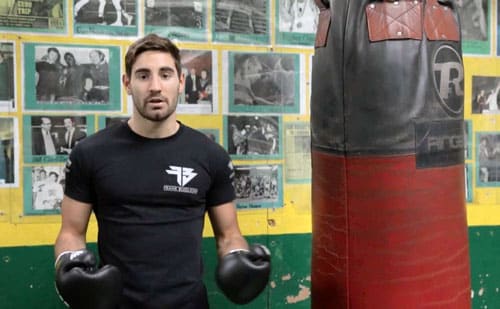
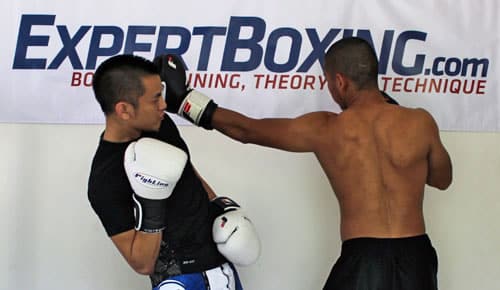
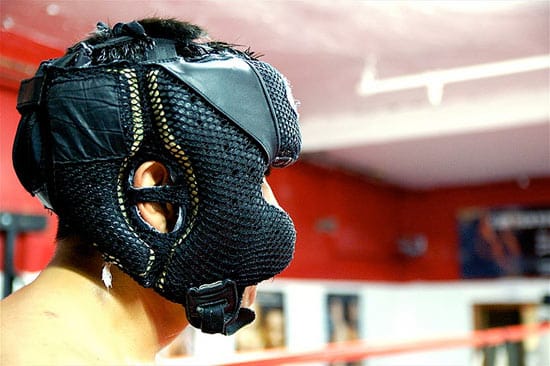
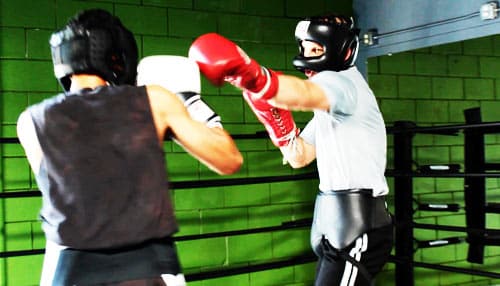
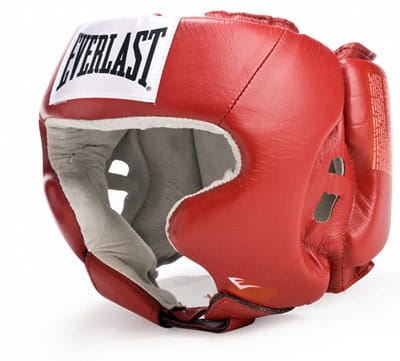
Another great article, wonder why there’s no comments yet?
There are more lurkers nowadays. People like to read but not comment. Most of the comments are usually on the Facebook post itself.
A Great Article. Thanks.
Just what I was looking for. Great article like everything you write is Johnny. Thank you Sir
And that’s why you have to totally trust your coach.
(or if your underage children box : your child’s coach): A win is fine, but a great coach knows when to throw the towel because the fighter is run over and hurt for nothing, the other guy showed up with 18lb above the weight (not heavyweight) etc…
It’s dangerous, it’s serious, and that’s why it is great.
I think a fighter can only fully concentrate if he is either nuts (won’t las long) or if he can rely on the coach.